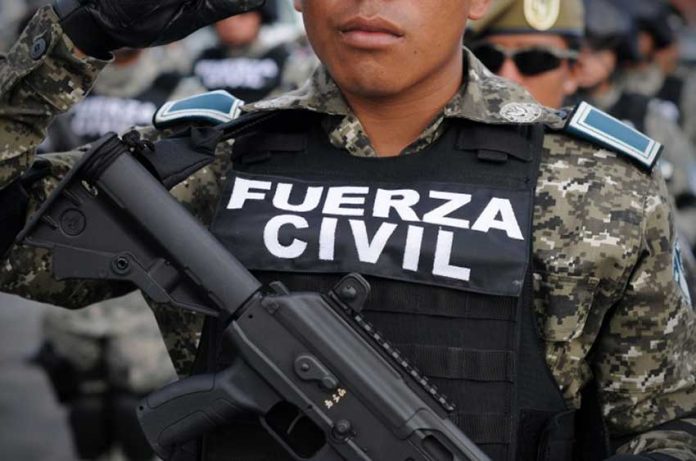The Jalisco New Generation Cartel (CJNG) has been on the offensive in Veracruz since the new governor took office late last year, and police are among the victims of their violence.
Four police officers have been murdered in the Gulf coast state since Morena party Governor Cuitláhuac García was sworn in on December 1.
The CJNG is believed to be responsible for the abduction and murder of Yanga municipal police officer Edgar Hernández in December, and last month the cartel ambushed police on the highway between La Tinaja and Cosamaloapan, killing one officer and wounding four more.
There were at least nine incidents of violence perpetrated by the CJNG between March 14 and 16, including attacks on police stations in Coatzacoalcos and Jáltipan.
The cartel also set up fiery blockades on several highways during the three-day period in an attempt to hinder police operations against it.
The offensive followed a successful police operation to dismantle a CJNG cell that was operating in the municipality of Tierra Blanca.
At the time, the governor said the violence was a response to police efforts against the cartel.
“What happened . . . was a propagandistic reaction . . . because we made some important arrests and seizures and they obviously reacted very angrily,” García said.
The CJNG, Mexico’s most powerful criminal organization, has been involved in a turf war in Veracruz with the Los Zetas cartel in recent years.
However, the violence has worsened in the first months of this year and there are fears that the security situation will deteriorate even further.
There were more than 400 intentional homicides in Veracruz during January, February and March, and almost 30% of all kidnappings in Mexico in 2019 have occurred in the state. It also leads in femicides, with 21 in the first two months of the year, up from 12 in the same period last year.
A collective made up of family members of missing persons found a hidden grave in the municipality of Río Blanco last month that contained 12 dismembered bodies.
Narco-banners have also appeared in different parts of the state.
On one narcomanta, the CJNG accused state Public Security Secretary Hugo Gutiérrez of being in cahoots with Los Zetas, while others that have been attributed to the Sinaloa Cartel warned of the return of the “old school” to the state and called for a truce between criminal groups.
“Align yourselves or I’ll align you,” said one banner, allegedly signed by Ismael “El Mayo” Zambada, leader of the Sinaloa Cartel.
Security chief Gutiérrez arrived in Veracruz from Nuevo León, where he was head of strategic operations in the Attorney General’s Office until he was let go under suspicion of being involved in extortion.
Twenty-eight police officers were also dismissed for the same reason.
The state’s Fuerza Civil, which is under Gutiérrez’s command, is under scrutiny by the Human Rights Commission. It has received three complaints of sexual abuse, forced disappearance and extrajudicial executions. Another 25 complaints accuse officers of excessive use of force.
Source: El Financiero (sp), e-veracruz (sp)
